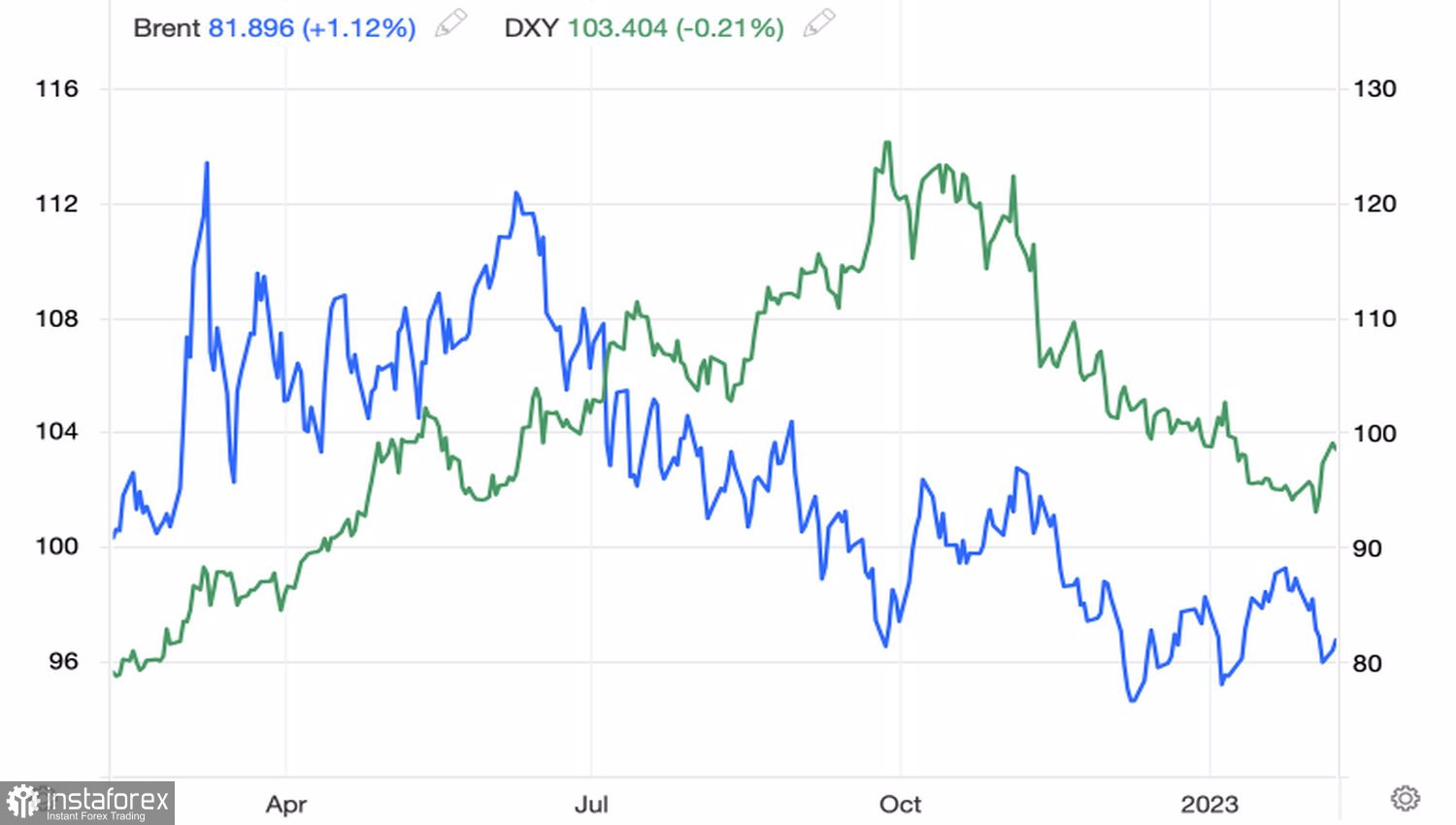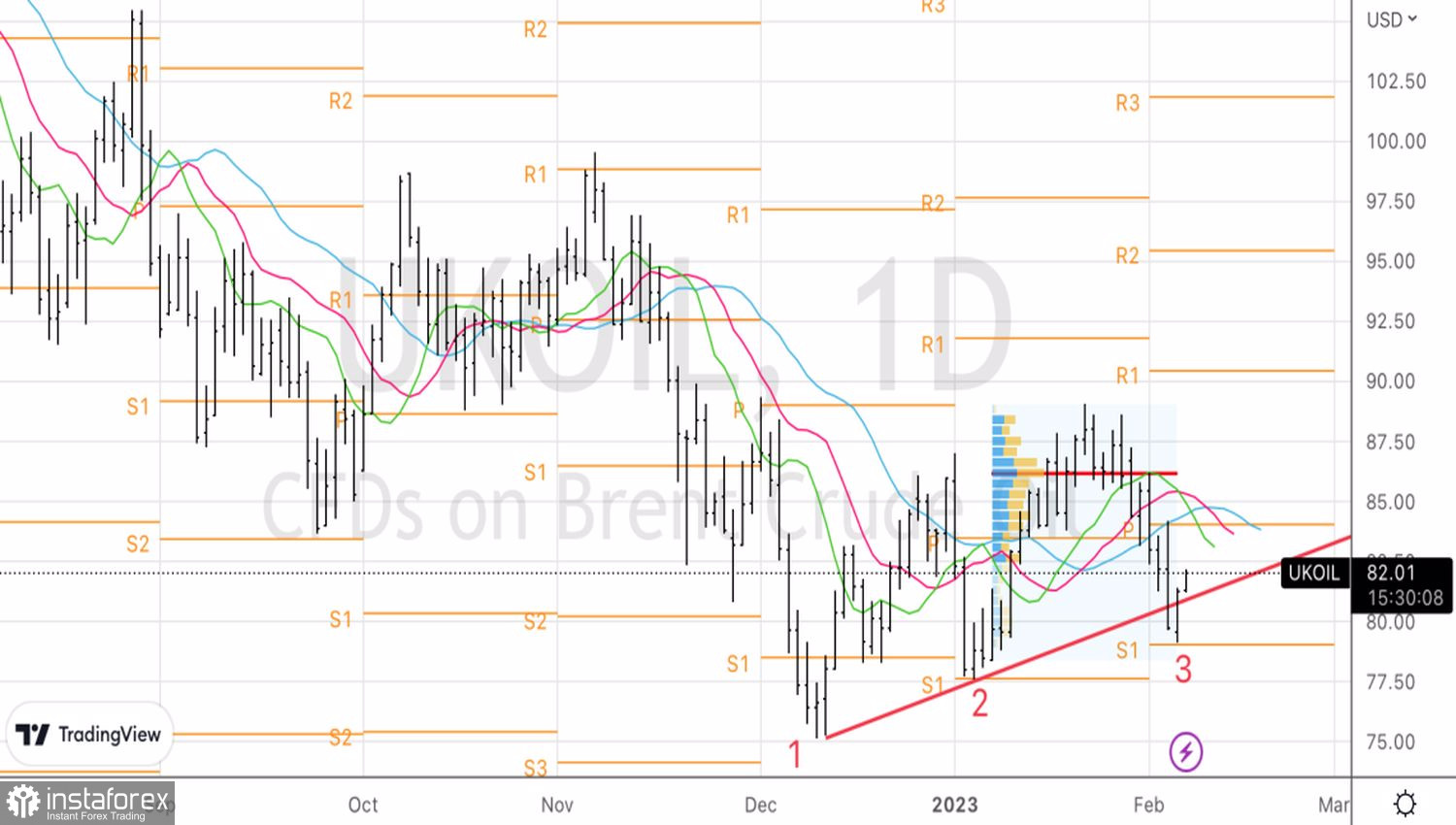When everyone is selling, there is a great opportunity to buy. The strong U.S. employment statistics for January and the related strengthening of the U.S. dollar were good news for those traders who see beyond their noses. The fate of oil is determined not only in the United States but also in China, Eurozone, Russia, as well as in the Middle East. And its outlook, based on assumed supply and demand dynamics, remains bullish. So why not buy Brent cheaper?
An increase in employment outside the U.S. agricultural sector by 517,000 and a drop in unemployment to 3.4% forced the futures market to reconsider its views on the future dynamics of the federal funds rate. After strong data, derivatives do not exclude its growth to 5.5%. At the same time, the chances of its preservation above 5% until September increased to 75%. If the Fed is more aggressive than expected and keeps borrowing costs at a peak until 2024, why sell the U.S. dollar? Its strengthening triggered the mechanism of curtailing long positions on oil futures and dropped Brent quotes to the monthly bottom.
Dynamics of oil and U.S. dollar

At the same time, oil market conditions remain bullish, as evidenced by its presence in the backwardation—the fast spread between the two nearest contracts is 33 U.S. cents and indicates a lack of supply. Indeed, sanctions against Russia, including the latest $100 price ceiling on diesel and low-grade products at $45 a barrel, are disrupting supply chains. The situation is exacerbated by the earthquake in Turkey, which shut down the 1 million b/d Ceyhan export terminal, and technical problems at the Johan Sverdrup oil field in Norway, which reduced supply by 535,000 b/d.
While investors are wary of the reopening of China's economy, the experience of other countries shows that the economy gets a huge boost under such conditions. In addition, strong U.S. employment is more good news for Brent than bad. If the U.S. manages to avoid a recession, oil demand in North America will remain strong, supporting prices. Add to that the eurozone's resilience to the energy crisis, and you get a pretty rosy picture for oil's medium to long-term outlook.

Saudi Arabia was one of the first to see beyond its nose. Riyadh has increased the price of its main grade of oil for buyers for the first time in the last six months. Information about this has become a catalyst for the rebound of the North Sea variety upwards.
Technically, on the daily chart, Brent completed the three-touch reversal pattern. It makes sense to buy oil at current prices and increase long positions on the breakout of resistance in the form of pivot points and moving averages near $83.4 and $84.1 per barrel. The initial targets are $86.3 and $89.





















